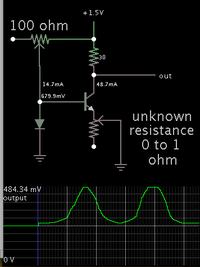isurunalaka
Member level 5
hi, i am looking for device which can measure copper rod/cable conductivity. is there any method other than measuring resistance and calculating conductivity?
Follow along with the video below to see how to install our site as a web app on your home screen.
Note: This feature may not be available in some browsers.

can you suggest me a good 4 wire commercial product to buy?
can you suggest me a good 4 wire commercial product to buy?
Hi,
For what resistance range? What resolution? What precision?
Klaus
I have an HP3478A 6 digit DMM which you can find used for a low price. It has 2 and 4 wire options as well as measures V,I,R with very high accuracy.
Hi,
you specify Ohm/km
do you need a measurement device to show Ohm/km?
If not: Specify what you need.
Klaus
can this be used for conductor resistance of copper cables?
- - - Updated - - -
basically i need to measure resistance either Ohm or Ohm/km. is there any specific devices to measure Ohm/km?
I have a 4 Wire Low Ohm meter using a 3 1/2 digit display, so it will only measure to .001 of an ohm.hi, i need to measure resistance of a 1m(minimum) length 0.2mm(minimum) diameter copper cable resistance with 1 micro ohm resistance least count. is there any commercial product available for this task.